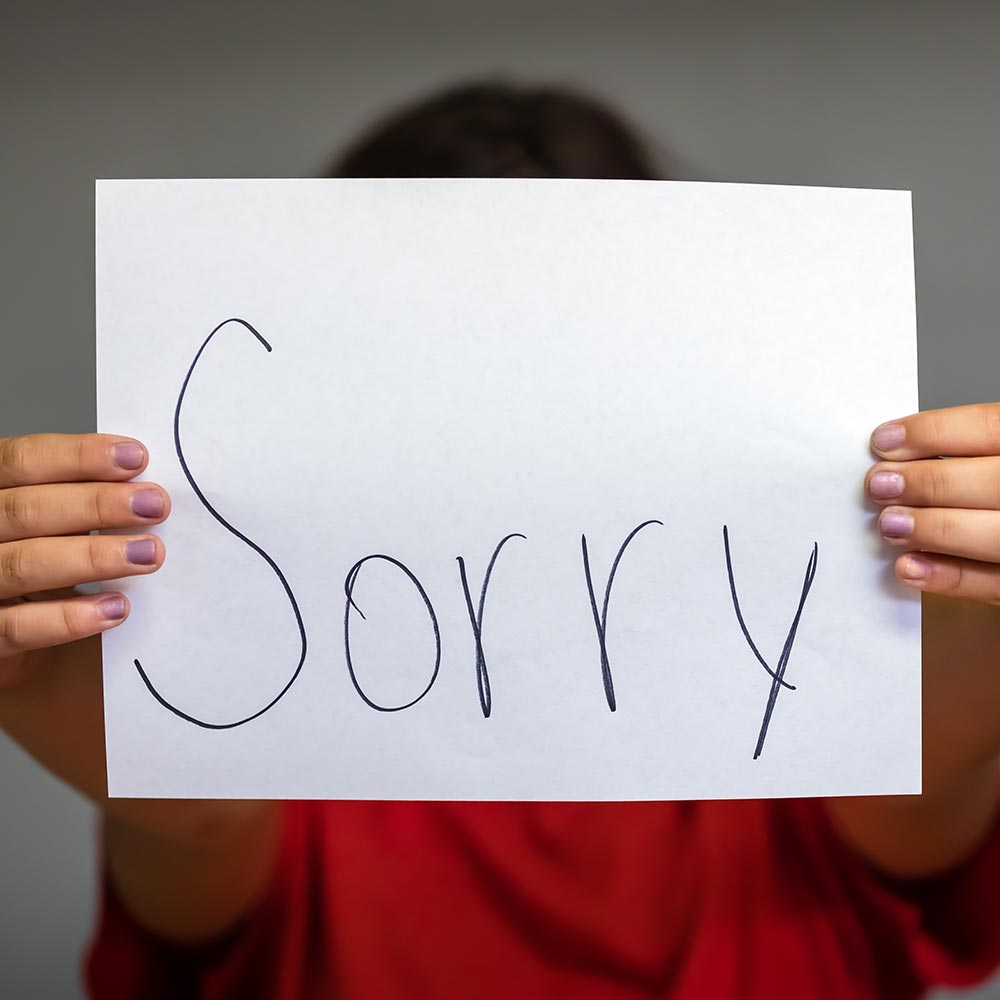Social media is brimming with memes and reels on a variety of ways most Indian parents apologise. Saying sorry directly isn’t one of them. Many of us will vouch that our parents would either just start being extra loving or simply make our favourite dish to make up to us. Admitting they erred has not been their forte and we’ve grown up to not expect that from them.
An apology can be offered in several ways and goes beyond the utterance of mere words. It is a power-packed way of communication and can withstand and even repair the damage inflicted by conflicts.
If it is such a powerful tool, why do many parents refrain from simply apologising to their children?
To apologise or not to apologise
According to a 2018 study titled The Psychology of Offering an Apology: Understanding the Barriers to Apologizing and How to Overcome Them, “After committing an offence, a transgressor faces an important decision regarding whether and how to apologize to the person who was harmed. The actions he or she chooses to take after committing an offence can have dramatic implications for the victim, the transgressor, and their relationship.”
The study adds that many individuals end up hesitating to apologise despite its benefits. “Although high-quality apologies are extremely effective at promoting reconciliation, transgressors often choose to offer a perfunctory apology, withhold an apology, or respond defensively to the victim,” the study explains.
According to this study, three major barriers makes people hesitate to apologise: (a) low concern for the victim or relationship, (b) perceived threat to the transgressor’s self-image, and (c) perceived apology ineffectiveness. Most parents do have a lot of care and concern for their children, so it is often either due to a perceived threat to their self-image or that they think it won’t make any difference.
Parents may feel pressurised to be role models for their children and chase perfection. Apologising means admitting that they are not really perfect. In fact, many parents also fear not being respected or losing their authority if they admit they were wrong.
However, here’s why apologising to your children when you make mistakes is actually important.
1) They learn to be humble
As the above-mentioned study pointed out, often people don’t apologise because it hurts their self-image. However, we teach our children that apologising doesn’t make them smaller or lesser human beings. By saying sorry, you are demonstrating it to your child – and emphasising that authority or position doesn’t give you a free pass to be disrespectful to others.

2) They learn how to deliver an honest apology
Saying sorry isn’t enough; you have to take accountability for your actions. That includes admitting what you did wrong, offering validation and a solution, and apologising like you really mean it. Kids watch and learn, especially from their parents. You can thus teach them how to apologise correctly.
3) They learn that nobody is perfect
Children grow up believing their parents are perfect. And when they become teenagers or adults, they already have very high expectations from their parents. But it doesn’t have to be that way. You don’t have to put so much pressure on yourself. And your children should know that their imperfections are just fine too, so they don’t end up becoming too self-critical. By apologising, you are telling your children that it’s okay to make mistakes—but it comes with accountability.

4) It builds trust and respect in your relationship
Admitting you were wrong about something assures your child that you’d understand their perspectives and respect their boundaries. It shows them that you care about their feelings and that you wouldn’t invalidate them.
5) They learn to forgive
By admitting your mistakes, you’re providing several opportunities to your child so they can learn to forgive. While apologising is important, it is also necessary to know how to forgive and let go of things. They learn empathy, kindness and forgiveness by letting go of hard feelings whatsoever.
Also Read: Healthy Habits Every Parent Should Teach Their Children